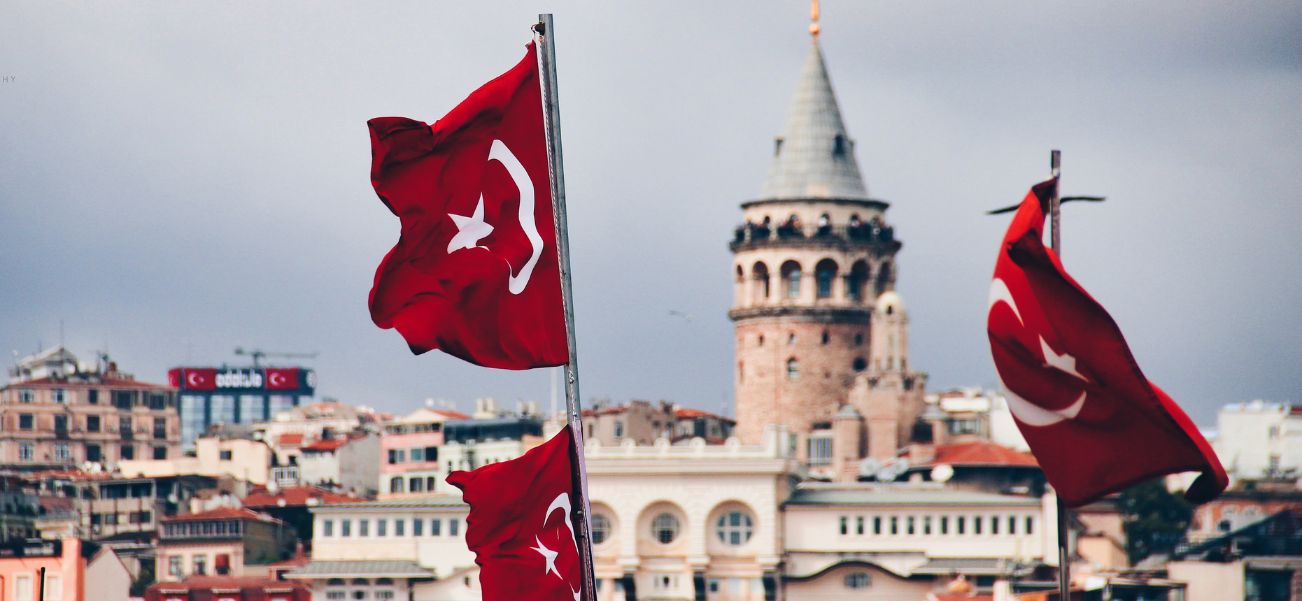
The Epic History of Turkey: From Ancient Anatolia to Modern Türkiye
Nestled at the strategic crossroads of Europe and Asia, the land that comprises modern Türkiye stands as one of the most historically rich and continuously inhabited regions on Earth. Anatolia, the Asian portion of Turkey, is not merely a country but a vast, open-air museum of human civilization—a grand stage where empires rose and fell, religions were born and transformed, and cultures melded into a unique tapestry. From the world’s first temples to the capital of a globe-spanning Islamic caliphate, the history of Turkey is, in many ways, a condensed history of humanity itself.
This blog post embarks on a chronological journey through the millennia, exploring how this land has been a cradle and a crucible for civilizations of Anatolia. We will trace the arc from the dawn of human settlement and the mighty Hittite Empire, through the classical glory of Byzantium and the six-century dominion of the Ottoman Empire, to the dramatic birth and ongoing evolution of the secular Turkish Republic. Prepare to delve into a past where every stone tells a story, and where the echoes of ancient footsteps still resonate in the vibrant, modern nation of Turkey.
A JOURNEY THROUGH TIME: THE COMPLETE HISTORY OF TURKEY FROM ANTIQUITY TO TODAY
Listen to this podcast about "The Epic History Of Turkey":
I. Prehistoric Anatolia: The Birthplace of Early Civilizations

Long before the term "Turkey" existed, the Anatolian plateau was laying the foundations for human society. Its fertile lands, rivers, and favorable climate made it a natural hub for early humankind.
1. Paleolithic and Neolithic Foundations
Evidence of early human presence in Anatolia dates back over a million years. However, it is the Neolithic Revolution (around 10,000 BCE) that truly marks Anatolia’s first world-historical contribution. Here, hunter-gatherers transitioned to settled agriculture, forever changing the human story.

The crown jewel of this era is Göbeklitepe, located in modern-day Şanlıurfa. Dating to circa 9600 BCE, it has traditional historical narratives. Dubbed the “world’s first temple,” Göbeklitepe is a complex of massive, T-shaped limestone pillars arranged in circles, intricately carved with animals and symbols. Its monumental architecture suggests organized labor and spiritual belief long before the establishment of permanent cities or widespread agriculture, challenging the idea that settlement led to religion—perhaps religion led to settlement.

Following in its footsteps, Çatalhöyük (c. 7500–5700 BCE) emerged as one of the planet’s earliest and largest urban experiments. This sprawling settlement, with its labyrinth of mud-brick houses accessed via rooftops, boasted a sophisticated society. Vibrant wall paintings, detailed reliefs, and evidence of trade in obsidian and other goods reveal a complex communal life, ancestor worship, and a surprising degree of social equality.
Göbeklitepe, Turkey: Unraveling the World's First Temple and Rewriting Human History
2. The Bronze Age in Anatolia
The discovery and mastery of metallurgy catalyzed the next great leap. During the Bronze Age (c. 3000–1200 BCE), Anatolia became a critical hub for early metallurgy and trade networks. Rich deposits of copper, tin, silver, and gold fueled economic and cultural development. City-states and early kingdoms emerged, engaging in commerce with Mesopotamia, the Aegean, and the Caucasus. This era of technological advancement and increasing social complexity set the stage for Anatolia’s first true empire.
II. The Hittite Empire: First Great Power of Anatolia

Around 1600 BCE, the Hittites stormed onto the world stage, establishing Anatolia’s first centralized, bureaucratic empire. Originating from the north, they conquered the indigenous Hattian peoples and built their capital at Hattusa (near modern Boğazkale), a formidable city with monumental walls, grand gates like the Lion Gate, and vast underground archives.
The Hittites were master administrators and innovators. Their cuneiform clay tablets, comprising thousands of diplomatic letters, legal codes, and religious texts, provide an unparalleled window into the Bronze Age world. Their legal system was advanced and often more humane than contemporary codes, emphasizing restitution over brutal punishment.
Militarily, the Hittites were a dominant force, clashing with the other superpower of the age: New Kingdom Egypt. The climax of this rivalry was the Battle of Kadesh (c. 1274 BCE), fought by Pharaoh Ramesses II and King Muwatalli II. The stalemate led to the Treaty of Kadesh, recorded in both Egyptian hieroglyphs and Hittite cuneiform. Recognized as the world’s first recorded peace treaty, a copy famously hangs at the United Nations headquarters. The Hittite Empire’s collapse around 1180 BCE, part of the broader Late Bronze Age collapse, left a power vacuum in Anatolia, but their legacy in law, statecraft, and metallurgy endured.
III. The Iron Age Civilizations of Anatolia
Following the Hittite collapse, Anatolia fragmented into a constellation of powerful Iron Age kingdoms, each with a distinct cultural identity.
1. Phrygians and King Midas

In central Anatolia, the Phrygians rose to prominence, with their capital at Gordion. Their most famous ruler, King Midas, became the subject of legend—the man whose touch turned everything to gold. The Phrygians were skilled metalworkers and weavers, and their mother goddess cult, Cybele, would deeply influence later Greek and Roman mythology.
2. Urartians in Eastern Anatolia

Centered around Lake Van, the kingdom of Urartu (c. 860–590 BCE) was a fortress state renowned for its advanced engineering. They constructed massive stone fortresses perched on hillsides and developed sophisticated irrigation systems and canals, some of which were still in use centuries later. Their precise stone masonry and metalwork were highly prized.
3. Lydians

In western Anatolia, the Lydians prospered, with Sardis as their wealthy capital. Their most enduring contribution to global civilization was the invention of coinage in the 7th century BCE. Under the legendary King Croesus, whose name became synonymous with immense wealth, the Lydian kingdom reached its zenith, minting the first standardized gold and silver coins, revolutionizing economics and trade across the Mediterranean.
IV. Persian Rule and the Classical Era

In the mid-6th century BCE, the expanding Achaemenid Empire of Persia, under Cyrus the Great, conquered Anatolia. The region was reorganized into provinces called satrapies, governed by Persian satraps. This period integrated Anatolia into a vast, transcontinental administrative system—the famous Royal Road stretched from Sardis to the Persian heartland. Persian rule introduced new artistic styles, administrative practices, and religious influences (like Zoroastrianism), creating a syncretic culture that blended with local traditions. This era lasted until a young Macedonian king arrived with grand ambitions.
V. Hellenistic Anatolia: Alexander’s Legacy

The conquests of Alexander the Great (334–323 BCE) irrevocably changed Anatolia’s cultural trajectory. After defeating the Persians at the Battle of Granicus, Alexander liberated (and effectively conquered) the Greek cities of the coast and pressed east. His untimely death led to wars between his generals, resulting in the division of his empire.
Anatolia became the heartland of several Hellenistic kingdoms. The Seleucids ruled much of the east, while the Attalids of Pergamon created a magnificent cultural and political center in the west. The period was marked by extraordinary artistic and scientific breakthroughs. Pergamon’s library rivaled Alexandria’s, its Altar of Zeus is a masterpiece of Hellenistic sculpture, and cities like Ephesus and Miletus were rebuilt on a grand scale. This fusion of Greek, Persian, and Anatolian elements created a vibrant, cosmopolitan world.
Uncovering Troy: Trojan War, Myth, Reality, or Something In Between
VI. Roman and Byzantine Anatolia: 1,000+ Years of Empire
1. Roman Anatolia

By the 1st century BCE, Anatolia was gradually absorbed into the Roman Republic and later the Empire. The Pax Romana brought unprecedented stability, urbanization, and infrastructure. Magnificent roads, aqueducts, amphitheaters (like the Aspendos theater), and libraries dotted the landscape. Anatolia became a wealthy, integral part of the empire, producing emperors, philosophers, and goods. It was also a crucial early center for Christianity—the Apostle Paul hailed from Tarsus and undertook his missionary journeys through Anatolian cities, many of which are addressed in the New Testament’s Epistles.
2. Birth of Constantinople
The Roman Empire’s center of gravity shifted eastward. Emperor Constantine the Great, after consolidating power, made a momentous decision. In 330 CE, he re-founded the ancient city of Byzantium as Nova Roma, though it would become known as Constantinople. Strategically positioned on the Bosporus Strait, it was a "New Rome" and the capital of the Eastern Roman Empire.
Constantine the Great: From Roman Emperor to Founder of Constantinople
3. Byzantine Era (330–1453)

The western Roman Empire fell, but the Eastern Roman, or Byzantine Empire, endured for over a thousand years. Its golden age came under Emperor Justinian I (527–565 CE), who reconquered vast territories and commissioned the architectural marvel of Hagia Sophia—a church of such sublime scale and beauty that it defined an era of architectural achievement.
The Byzantine era was defined by deep religious transformations and schisms, most notably the Great Schism of 1054 that separated Eastern Orthodox Christianity from the Roman Catholic Church. The empire served as a bulwark, enduring long conflicts with Sassanid Persians, Arab caliphates, and, fatefully, European Crusaders who sacked Constantinople in 1204. Weakened, the empire shrank to a shadow of itself, centered on its legendary capital, until it finally met its end at the hands of a new Muslim power rising in Anatolia.
VII. The Seljuk Era: Arrival of the Turks in Anatolia

The Battle of Manzikert in 1071 was a watershed moment. The Seljuk Turkish Sultan Alp Arslan decisively defeated the Byzantine Emperor Romanos IV Diogenes. This victory opened the floodgates for the gradual Turkish settlement of Anatolia. The Seljuk Sultanate of Rum (with capitals in İznik and later Konya) established a powerful Muslim state.
The Seljuks were great patrons of art and architecture. They dotted the Anatolian landscape with elegant mosques, madrasas (theological schools), hospitals, and especially caravanserais—fortified inns that secured the Silk Road trade routes, boosting commerce and cultural exchange. Their distinct architectural style, with pointed arches, intricate tilework (çini), and ornate portals, left an indelible mark. After the Mongol invasions of the 13th century, the Sultanate fragmented into smaller Turkish principalities known as "beyliks". From one of these modest beyliks on the Byzantine frontier, a world empire would spring.
VIII. The Ottoman Empire: Six Centuries of Power

1. Foundation Period (1299–1453)
The story begins with Osman I, leader of a small Turkmen beylik in northwestern Anatolia. Through strategic marriages and military "ghaza" (raids for Islam), the Ottoman principality expanded, capturing Bursa in 1326 and making it the first capital. The Ottomans crossed into Europe in the 1350s, establishing a foothold in the Balkans.
2. Rise and Conquest of Constantinople

The defining moment of the early empire came in 1453. The young Sultan Mehmed II ("the Conqueror"), using massive cannons and brilliant strategy, laid siege to Constantinople. The city fell on May 29, 1453, marking the end of the Byzantine Empire. Mehmed made it his new capital, Istanbul, and began an ambitious rebuilding program, transforming the Hagia Sophia into a mosque and repopulating the city as a cosmopolitan imperial center.
3. Classical Golden Age (16th Century)
The empire reached its zenith under Suleiman the Magnificent (1520–1566). His armies advanced to the gates of Vienna, dominated the Mediterranean, and controlled territories across Southeast Europe, Western Asia, and North Africa. This was also a golden age of culture, with the chief architect Mimar Sinan designing masterpieces like the Süleymaniye and Selimiye Mosques. Suleiman’s comprehensive legal reforms earned him the title "The Lawgiver."
4. Social and Cultural Structure
The empire’s longevity owed much to its flexible millet system, which allowed religious communities (Orthodox Christians, Jews, Armenians) significant autonomy under their own religious leaders. This fostered a multiethnic imperial society. Trade flourished along the Silk Road and spice routes, while science, literature (especially in Ottoman Turkish, Arabic, and Persian), and the decorative arts thrived.
Ottoman Empire: Successor of the Roman Empire? The Ultimate Historical Debate
5. Era of Stagnation & Reform
From the late 17th century, the empire faced military defeats, territorial losses, and internal stagnation. A centuries-long process of reform began, culminating in the Tanzimat period (1839-1876)—a series of modernist reforms aimed at centralizing the state, modernizing the army, and guaranteeing rights to all citizens, regardless of religion. Despite these efforts, the empire, dubbed "the sick man of Europe," continued to weaken.
6. Fall of the Empire
The final death knell was World War I. Aligning with Germany, the Ottoman Empire suffered catastrophic defeats. The Balkan Wars had already stripped it of most European territories, and WWI led to the partition plans of the Allies. The Armistice of Mudros (1918) resulted in the occupation of Anatolia by Greek, French, Italian, and British forces, seemingly heralding the empire's complete dissolution.
Why Turkish Didn’t Spread Globally Like English, Arabic or Spanish: Explained
IX. Turkish War of Independence & the Birth of the Republic

1. Occupation of Anatolia After WWI
In the face of foreign occupation and dismemberment, a national resistance movement coalesced. Local "Defense of Rights Societies" sprang up, refusing to accept the Allies' imposed settlements.
2. Mustafa Kemal Atatürk and the National Struggle

The movement found its leader in Mustafa Kemal Pasha, a brilliant Ottoman general. Landing in Samsun in May 1919, he organized the resistance politically and militarily. The Grand National Assembly was established in Ankara in 1920. Against overwhelming odds, the Turkish forces, led by Mustafa Kemal, won critical victories at the Battle of Sakarya (1921) and the decisive Battle of Dumlupınar (1922), leading to the liberation of Anatolia.
3. Founding of the Republic (1923)

The Treaty of Lausanne (1923) recognized the borders of the new Turkish state. On October 29, 1923, the Republic of Turkey was proclaimed, with Ankara as its capital and Mustafa Kemal as its first president, later given the surname Atatürk ("Father of the Turks").
4. Atatürk’s Reforms

Atatürk embarked on a radical, top-down revolution to create a modern, secular, Western-oriented nation-state. His sweeping reforms included:
- The abolition of the caliphate and establishment of secularism
- The adoption of a new legal code based on European models
- The replacement of the Arabic script with a modified Latin alphabet
- The emancipation of women- (granting suffrage and rights ahead of many European nations)
- A massive push for free, compulsory education
These changes aimed to sever ties with the Ottoman past and build a new Turkish national identity.
X. Modern Turkey: From 1950s to the Present

1. Multiparty Politics
After Atatürk’s death in 1938, his Republican People’s Party (CHP) continued his statist policies. The transition to multiparty politics began in 1946, and the Democrat Party won a landslide victory in 1950, marking a shift toward more liberal economic policies and greater emphasis on conservative values, setting the stage for Turkey’s enduring political dynamics.
2. Economic and Social Development
The latter half of the 20th century saw rapid industrialization, massive urbanization (with cities like Istanbul exploding in size), and the growth of tourism as a key industry. Turkey navigated Cold War alliances as a NATO member, experienced periods of political instability and military coups (1960, 1971, 1980, 1997), and gradually liberalized its economy.
3. Turkey in the 21st Century
Today, Turkey is a regional power with a dynamic, complex identity. Its EU relations have been a long, complicated journey of negotiation. It asserts itself as a key diplomatic and sometimes military player in the Middle East, Caucasus, and Eastern Mediterranean. The 21st century has also seen a cultural resurgence—a booming film and TV industry, contemporary art scene, and a rediscovery of both Ottoman and diverse Anatolian heritage. Its geopolitical role is pivotal, balancing its Western alliances with its Eastern heritage and independent foreign policy.
XI. Turkey’s Cultural Legacy Across Millennia
The history of Turkey is not a linear narrative but a mosaic of civilizations, each adding a unique piece. This legacy is tangible everywhere:
- Architecture From the stones of Göbeklitepe and the walls of Hattusa, to the theaters of Ephesus, the dome of Hagia Sophia, the Seljuk caravanserais, and the skyline of Ottoman mosques.
- Cuisine Turkish food is a fusion of Central Asian Turkic, Persian, Arab, and Balkan influences—a delicious testament to its history.
- Religion A land of ancient pagan gods, early Christianity (the Seven Churches of Revelation), Orthodox spirituality, and Islamic mysticism (Sufi orders like the Mevlevi).
- UNESCO World Heritage Turkey boasts 21 sites, including Cappadocia, Troy, Hierapolis-Pamukkale, and the Historic Areas of Istanbul, protecting this unparalleled continuity.
The cultural DNA of modern Türkiye carries strands from Hittites to Ottomans, making it a living repository of human achievement.
XII. Conclusion
The history of Turkey is a grand epic spanning over twelve millennia. It is the story of Anatolia, the immutable stage, and the countless peoples—Hattians, Hittites, Greeks, Romans, Byzantines, Turks, and more—who have called it home. This land has been a bridge not just between continents, but between vast eras and cultures: between the Stone Age and the urban age, between pagan pantheons and monotheistic faiths, between eastern and western empires. From the inventors of coinage and the authors of the first peace treaty to the builders of hemispheric domes and the architects of a radical modern republic, the contributions born here have indelibly shaped global civilization.
Understanding Turkey’s past is key to comprehending the complexities of our world—the interplay of East and West, the roots of conflict and synthesis, and the enduring human desire to build, believe, and belong. This history is not buried but lived, visible in bustling bazaars, echoing in the call to prayer, tasted in its cuisine, and felt in the warmth of its people. To explore the history of Turkey is to take a journey through the heart of human history itself. We encourage you to dive deeper into its chapters and, when possible, to walk its ancient streets and stand in awe of its timeless landscapes. The stones of Anatolia have many more stories to tell.















